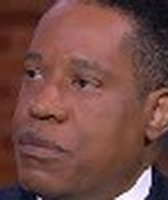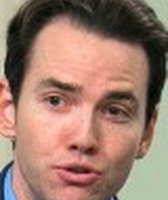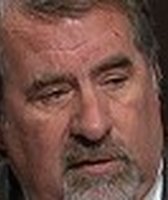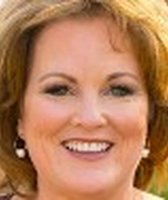Stand up for the facts!
Our only agenda is to publish the truth so you can be an informed participant in democracy.
We need your help.
I would like to contribute

StockMonkeys.com via Flickr
Supporters of Proposition 61, the California Drug Price Relief Act, say it would chip away at the huge cost of prescription drugs in the state and eventually lower prices nationwide.
The measure would require the state of California to buy drugs for its employees, retirees and prison inmates at the same discounted rate the U.S. Department of Veterans Affairs receives. The VA historically pays far less for drugs than most government agencies.
In a recent flood of TV advertisements, however, the No on 61 campaign has argued the measure would increase drug costs -- not reduce them -- for the vast majority of Californians.
No on 61 is funded almost exclusively by pharmaceutical companies. They have pumped nearly $110 million into the campaign against the measure. Supporters have raised close to $18 million for it.
The nonprofit AIDS Healthcare Foundation placed the measure on the ballot citing concerns over the rising costs of HIV drugs.
Here’s the No on 61 claim that caught our attention:
"For nearly all Californians, Prop 61 will make the problem worse. Prop 61 only covers 12 percent of Californians like some state government employees and prisoners," says Dr. Lissette Lopez of San Francisco, in one of the No on 61 ads. "The other 88 percent of Californians would see an increase in their prescription drug costs."
In the ad above, the No on 61 campaign says prescription drug prices will rise for most Californians if Prop 61 is approved.
We focused on the portion about increasing drug costs for most Californians.
Perhaps more than any of California’s 17 ballot measures, there’s uncertainty over how Prop 61 would play out.
The initiative does not require drug companies to reduce their prices. It’s up to the state to negotiate for lower charges.
Many experts say they’re doubtful the measure could ever be implemented if passed. Because analysts describe numerous scenarios for how drug costs could go up or down as well as the possibility companies could refuse to sell some pharmaceuticals in California, we did not place a Truth-O-Meter rating on the claim. It’s a prediction and PolitiFact does not rate predictions or opinions.
We took a similar approach to a claim made by Vermont Sen. Bernie Sanders in his Yes on 61 TV advertisement. Sanders said Prop 61 "will be great for California taxpayers." Opponents, and even some independent analysts, say taxpayers could actually pay more under some scenarios, particularly if drug companies raise prices on the VA in response.
In the video ad above, Bernie Sanders says a prescription drug measure on California's November ballot 'is great for taxpayers.'
Given the attention this measure has drawn, both in California and across the country, we decided to examine the facts as they are known about the No on 61 claim.
Our research
A spokeswoman for the No on 61 campaign cited analysis from several sources to back its claim.
"This measure has been reviewed by the Berkeley Research Group, Pacific Research Institute, the Los Angeles Times editorial board and various other organizations that have found that the measure could and would lead to higher drug prices for those not covered by Prop 61," the spokeswoman said in an email.
Representatives for those groups did reach that conclusion. But it should be noted the No on 61 campaign paid the Berkeley Research Group, a private consulting firm, to conduct its analysis.
The basic conclusion they reached is that drug companies would hike costs on everyone not covered by the measure to recoup any profits lost as a result of Prop 61.
Here’s how the the Los Angeles Times described it in an October editorial opposing the measure:
"If pharmaceutical companies are as profit-hungry as the supporters of Proposition 61 contend — and you’ll hear no argument to the contrary from us — they will seek to recover those lost profits by taking more out of someone else’s hide. After all, that’s what happened after Congress ordered drugmakers in 1990 to extend discounts to Medicaid; according to the General Accounting Office, many pharmaceutical companies responded by raising prices for buyers in the private sector."
Robert Schwartz, a visiting professor at UC Hastings law school and expert on health law who was not cited by the campaign, said Prop 61 could lower costs for the state, which spent $3.8 billion in the 2014-15 fiscal year on prescription drugs.
The professor agreed, however, that a price hike is possible for some.
"It might also be that the drug companies simply increase the price of their of prescription pharmaceuticals enough to cover the profit they're losing as a result of the California statute," Schwartz, who is not affiliated with either campaign, said in recent online video.
Response from Yes on 61
A spokesman for the Yes on 61 campaign called the claim by opponents "a threat."
"First of all, there is absolutely nothing in this measure that would raise prices on anybody," he said. "Any claim that 88 percent of Californians would see a price increase is either speculation or a threat."
The Yes on 61 spokesman added that raising prices on the rest of California isn’t that simple. Private health plans in the state negotiate the cost of drugs with the pharmaceutical industry "and will not take kindly to having their own costs raised by Pharma," the spokesman said.
The Yes campaign is correct that there’s no portion of Prop 61 that calls for raising drug prices.
What’s less clear is what drug companies would do.
California’s independent Legislative Analyst’s Office does not explicitly say drug companies would hike costs on 88 percent of Californians. But it says the companies will likely do what’s necessary to protect their profits.
"In order to maintain similar levels of profits on their products, drug manufacturers would likely take actions that mitigate the impact of the measure," the LAO report says.
It adds there are "major uncertainties concerning the implementation of the measure’s lowest-cost requirement and how drug manufacturers would respond in the market."
Conclusion
The No on 61 campaign has claimed in a flood of TV ads that the measure will boost prescription drug costs for the vast majority of Californians not covered by it.
There’s nothing in the measure that would require a price hike.
But independent experts say it’s possible, or even likely, drug companies would raise prices to recoup any profits lost due to the measure.
Supporters of Prop 61 say that’s a "threat" by Big Pharma, which is bankrolling the opposition campaign. They also say such cost-shifting would not be automatic because private health plans would push back against higher costs during negotiations.
We can’t rate the No on 61 claim on our Truth-O-Meter because it’s a prediction. We agree the answer to these unknowns rests with two key factors: The state’s ability to negotiate lower prices and the pharmaceutical industry’s drive to recover any profits lost.
Our Sources
No on 61 campaign, Dr. Lopez ad, Oct. 17, 2016
Legislative Analyst’s Office, Proposition 61 analysis, accessed October 2016
Berkeley Research Group, The Economic and Fiscal Impact Of the AHF Prescription Drugs Initiative, accessed October 2016
Robert Schwartz, visiting professor, UC Hastings College of the Law, video analysis, CA Proposition 61 : Drug Price Standards Initiative, accessed October 2016
PolitiFact California, Examining Bernie Sanders’ claim: Prop 61 ‘great for California taxpayers’, Oct. 12, 2016
USNews.com, op-ed by Joel Zinberg, visiting scholar American Enterprise Institute, Higher Prices, Less Choice, Nov. 3, 2016
Los Angeles Times, editorial, Proposition 61 is the wrong solution to the problem of high drug prices, Oct. 4, 2016
Orange County Register, op-ed by John R. Graham, senior fellow at the Pacific Research Institute, To control drug prices, pursue fraud, not manufacturers, Dec. 19, 2015
Health Affairs Blog, California’s Proposition 61: Will Direct Democracy Impact Prescription-Drug Pricing?, Nov. 1, 2016
KPBS.org, Election 2016 FAQ: Proposition 61, Prescription Drug Costs, Oct. 9, 2016
Interview, Kathy Fairbanks, spokeswoman for No on 61, Oct. 31, 2016
Interview, Roger Salazar, spokesman for Yes on 61, Oct. 10, 2016


















































